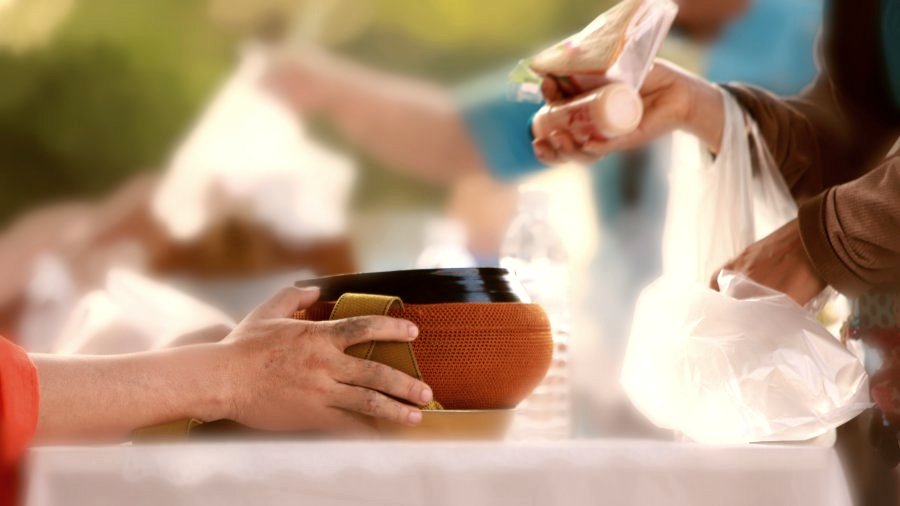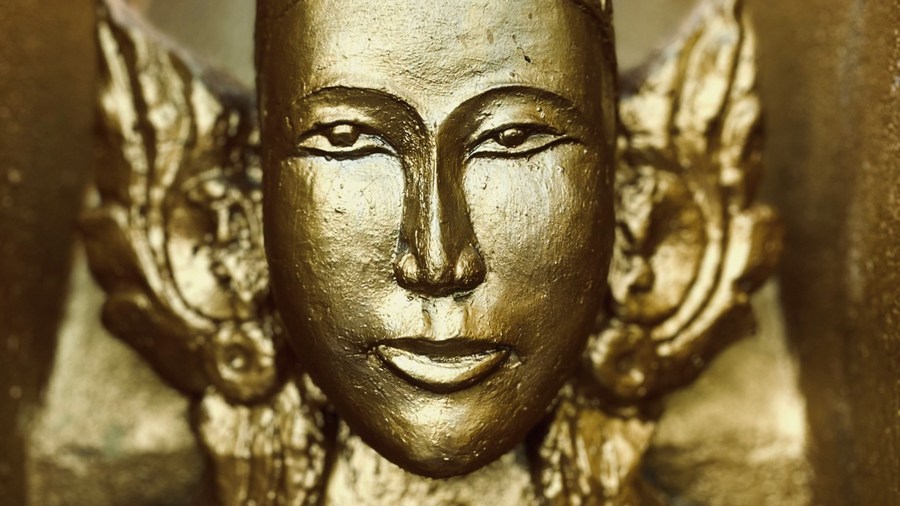On one occasion the Blessed One was dwelling at Savatthi in Jeta’s Grove, Anathapiṇḍika’s Park. Then, when the night had advanced, a number of devatās belonging to the Satullapa host, of stunning beauty, illuminating the entire Jeta’ s Grove, approached the Blessed One. Having approached, they paid homage to the Blessed One and stood to one side.
Then one devatā, standing to one side, recited this verse in the presence of the Blessed One:
“Through stinginess and negligence
A gift is not given.
One who knows, desiring merit,
Should surely give a gift.”
Then another devatā recited these verses in the presence of the Blessed One:
“That which the miser fears when he does not give
Is the very danger that comes to the nongiver.
The hunger and thirst that the miser fears
Afflict that fool in this world and the next.
“Therefore, having removed stinginess,
The conqueror of the stain should give a gift.
Deeds of merit are the support for living beings
When they arise in the other world.”
Then another devatā recited these verses in the presence of the Blessed One:
“They do not die among the dead
Who, like fellow travellers on the road,
Provide though they have but a little:
This is an ancient principle.
“Some provide from the little they have,
Others who are affluent don’t like to give.
An offering given from what little one has
Is worth a thousand times its value.”
Then another devatā recited these verses in the presence of the Blessed One:
“The bad do not emulate the good,
Who give what is hard to give
And do deeds hard to do:
The Dhamma of the good is hard to follow.
“Therefore their destination after death
Differs for the good and the bad:
The bad go to hell,
The good are bound for heaven.”
Then another devatā said to the Blessed One: “Which one, Blessed One, has spoken well?”
“You have all spoken well in a way. But listen to me too:
“If one practises the Dhamma
Though getting on by gleaning,
If while one supports one’s wife
One gives from the little one has,
Then a hundred thousand offerings
Of those who sacrifice a thousand
Are not worth even a fraction
Of the gift of one like him.”
Then another devatā addressed the Blessed One in verse:
“Why does their sacrifice, vast and grand,
Not share the value of the righteous one’s gift?
Why are a hundred thousand offerings
Of those who sacrifice a thousand
Not worth even a fraction
Of the gift of one like him?”
Then the Blessed One answered that devatā in verse:
“Since they give while settled in unrighteousness,
Having slain and killed, causing sorrow,
Their offering—tearful, fraught with violence—
Shares not the value of the righteous one’s gift.
That is why a hundred thousand offerings
Of those who sacrifice a thousand
Are not worth even a fraction
Of the gift of one like him.”
Read this translation of Saṁyutta Nikāya 1.32 Maccharisutta: Stinginess by Bhikkhu Bodhi on SuttaCentral.net. Or read a different translation on SuttaCentral.net. Or listen on PaliAudio.com or SC-Voice.net. Or explore the Pali on DigitalPaliReader.online.
Or read a translation in Deutsch, Русский, বাংলা, Català, Español, Bahasa Indonesia, Italiano, 日本語, မြန်မာဘာသာ, Norsk, Português, සිංහල, ไทย, Tiếng Việt, or 汉语. Learn how to find your language.




